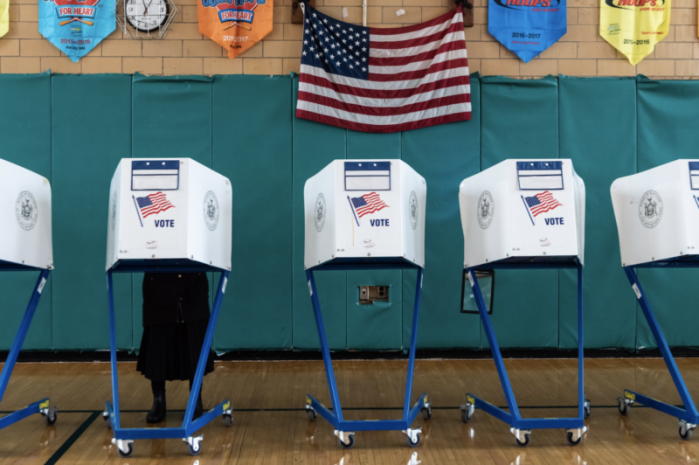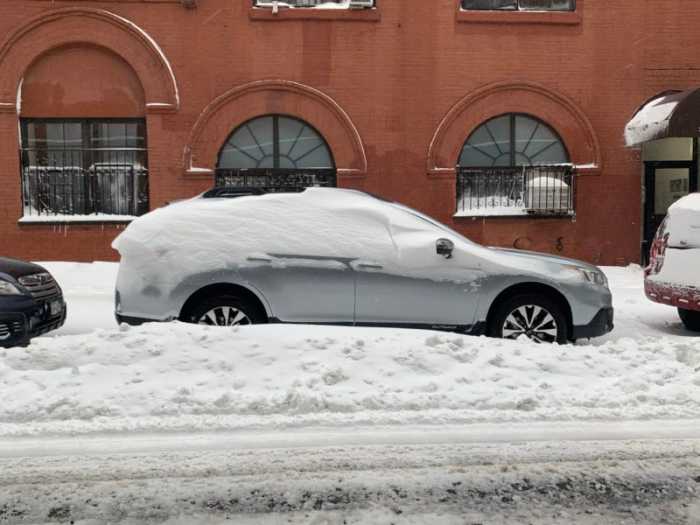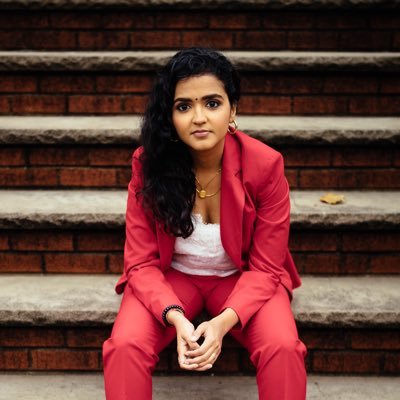BY JACOB KAYE, CLARISSA SOSIN & GABRIELE HOLTERMANN
New York City’s first test of ranked-choice voting began Tuesday morning as voters made their way through a historic snowstorm to cast their ballots in the special election in City Council District 24.
With eight candidates running to represent the district, which covers parts of Briarwood, Electchester, Fresh Meadows, Hillcrest, Jamaica, Jamaica Hills, Jamaica Estates, Kew Gardens Hills, Parkway Village and Pomonok, voters will rank their top five choices, one through five, for the first time in the city’s history.
The new ballot system’s first run appeared to be threatened Monday morning, as major parts of New York City were shut down one by one as a result of the powerful nor’easter that brought nearly two feet of snow to the city. Several candidates called on Mayor Bill de Blasio to postpone the special election, warning the heavy snowfall could disenfranchise voters unable to make it through the hazardous conditions.
Despite the requests to delay, de Blasio and the city’s Board of Elections decided to go forward with the date, which was set in early November after former Councilman Rory Lancman vacated the seat when he took a job in Governor Andrew Cuomo’s administration.
However, around 2,000 voters in the district who cast ballots during the election’s nine-day early voting period won’t have to brave the snow-covered streets to make their voices heard Tuesday. The early votes account for about 2.3 percent of eligible voters in the non-partisan election.
Polling sites, which opened at 6 a.m. and will remain open until 9 p.m., can be found here.
In the face of heavy snowfall, a pandemic and an election date so soon after November’s general election, turnout Tuesday morning appeared low, with no more than 10 voters casting ballots at sites like P.S. 219 and P.S. 165 in Kew Gardens Hills several hours after the schools’ doors opened for voting.
However, for those who did show, ranked-choice voting didn’t prove to be much of an obstacle. Voter Jesse Boiangiu said the new process was straight forward and that he based his candidate ranking on experience and broad appeal.
“We are going through a year long pandemic. I’m a business owner. We need someone who is going to come back to the people,” Boiangiu said. “How can every nationality benefit from someone? How can every business benefit from someone who has proven leadership?”
Alan Hochster, a voter in the district, said he educated himself about the new voting process and said it was easy.
“I like to hear more of what the results are going to be and how it affects the results. I’m not an expert on how those things work. But to me it sounds like a good idea,” Hochester said.
The new voting system will see voters rank the candidates – Moumita Ahmed, Michael Brown, James Gennaro, Neeta Jain, Dilip Nath, Mujib Rahman, Deepti Sharma and Soma Syed – one through five. If one of the candidates receives over 50 percent of first-choice votes, they will be declared the winner. If no candidate surpasses that threshold, the candidate with the fewest first-choice votes will be eliminated. Voters who chose the eliminated candidate as their first choice will have their ballot count toward their second-choice and the ballots are counted again. The process will repeat until a winner is declared.
Sharma, one of the candidates on the ballot, started her rounds at 6 a.m. and by 11 a.m. had been to about a dozen polling sites, she said.
“Poll sites are pretty slow right now,” Sharma said.
The poll sites themselves have been relatively well shoveled and accessible, she observed. But that’s not her main concern.
“I think the harder part is people just getting out of their homes and shoveling their way out of their homes to the poll sites,” she said.
Her campaign is offering rides to voters, she said, but she’s not sure how many people will take them up on the offer because of the pandemic.
Rhman, another candidate on the ballot, said that de Blasio’s decision to not postpone the election because of the snow aids some candidates and not others.
“He did the favor to the establishment and not the new candidates,” Rahman said.
Like many of the other candidates, he was driving around to different polls throughout the district and like the other candidates, he’s worried about the storm’s effect on voter turnout.
Cars are stuck, buried in the snow. And if a voter can get their car out, they won’t be able to find parking when they get to the polls, he said.
Jain, who’s running to represent the district, said that despite being in support of ranked-choice voting, she was concerned that not all voters were aware of how it worked.
“They come out of the voting site, and it gives me a little disappointment when they say they just voted for one,” Jain said. “It’s going to take time for voters to understand how it works.”
Syed said that her campaign was also working hard to get voters out by phone banking and offering rides. But her excitement over election day is mixed with a sense of sadness that not everyone will be able to make it to the polls. There are lots of impediments to voting other than the storm. Voters might be deterred because they are confused about the new voting system, or they might fear contracting COVID-19, Syed said.
“The city has failed the residents of District 24 by not taking into calculation the overwhelming factors – a pandemic, nor’easter and the rank choice voting – where so many people will not be coming out to vote,” she said. “That is injustice, and that is a sad state of fact, and the city has to take responsibility for that.”
Voter turnout wasn’t uniformly as low as expected across the district Tuesday. The poll supervisor at P.S. 164 in Kew Gardens Hills said turnout was better than he had expected, given the weather and pandemic. He had estimated that about 100 people had cast their votes by noon.
However, the supervisor did notice some confusion around ranked-choice voting.
Voters received pamphlets at the poll site explaining how to properly vote under the new system. Although, if voters have further questions once they’ve begun voting, they’re out of luck, as poll workers cannot assist them once voters have begun filling out their ballot.
Sorolle Ideals, a community board member and poll worker, said she has been voting at P.S. 164 for more than 20 years and is not a fan of ranked-choice voting. She believes it confuses people and might deter voters from heading to the polls because it’s complicated.
“People already have a hard enough time with the whole election system and I think giving them more options just confuses it,” Ideals said. “When people have an idea of who they like, that’s who they like. They might not like everything about that person but overall they like what that person stands for.”
The winner of the special election will serve until the end of 2021 when Lancman’s original term is set to end. Voters will head back to the polls in June for the primary elections and again in November for the general election for the same City Council seat.
This story first appeared on QNS.com, one of our sister publications










